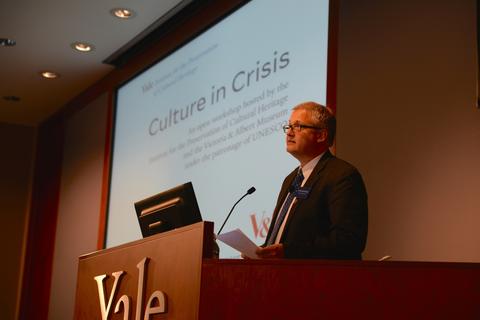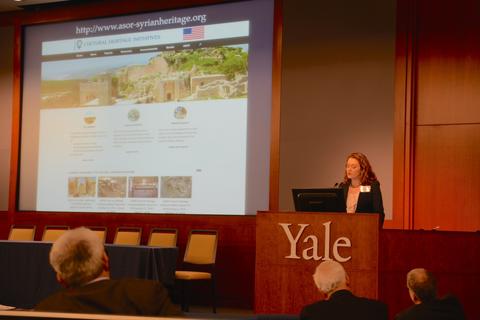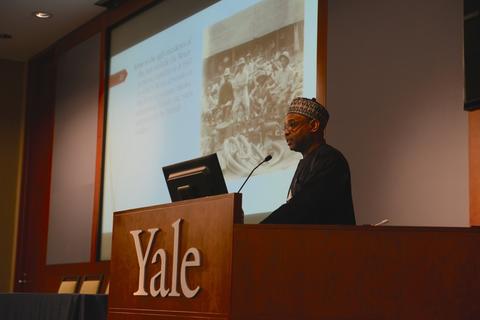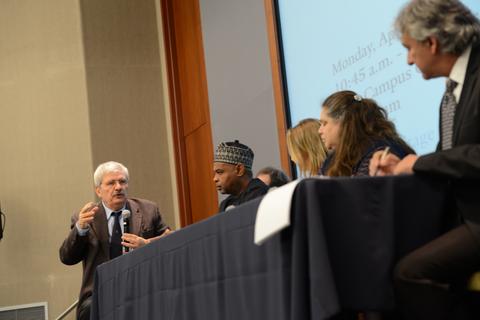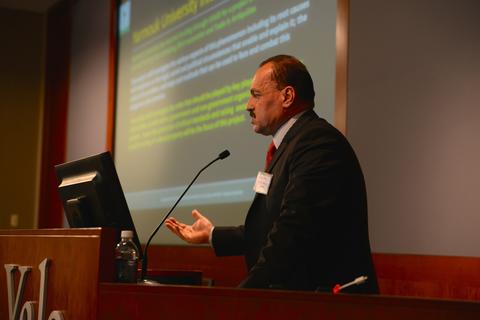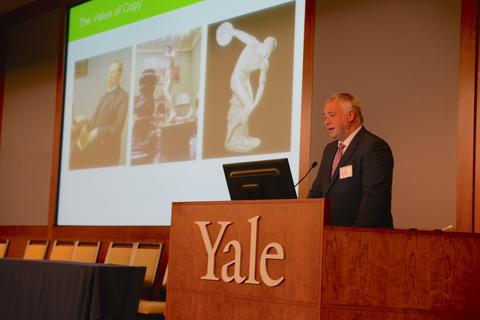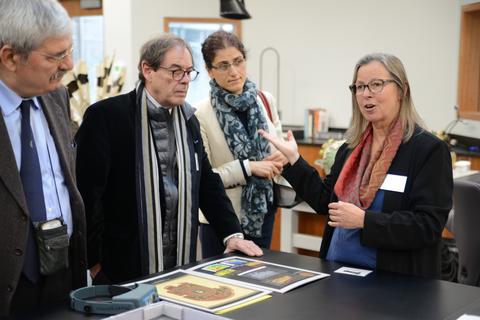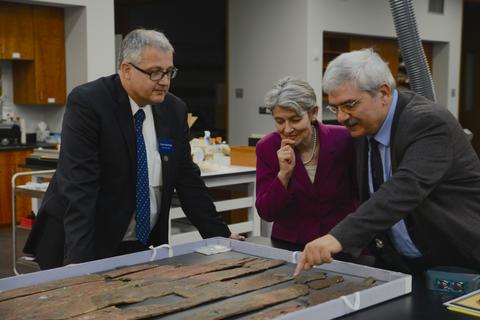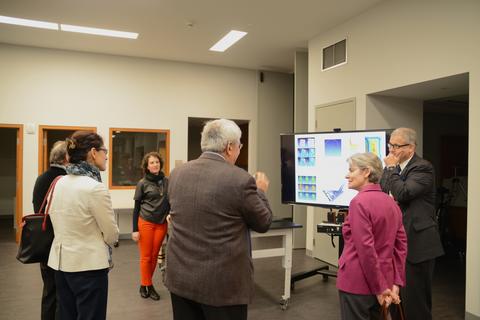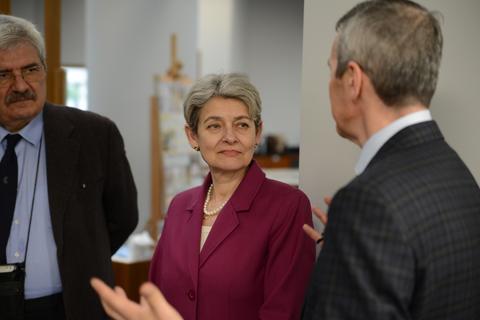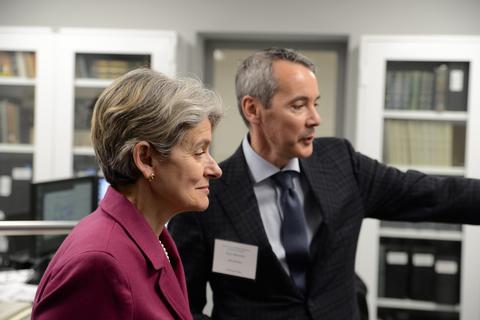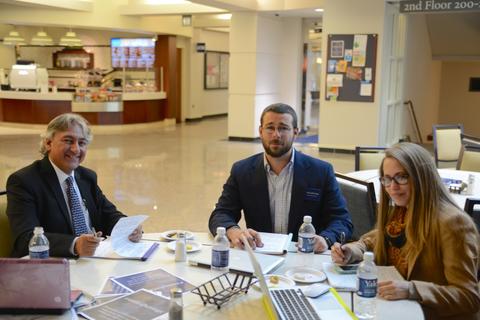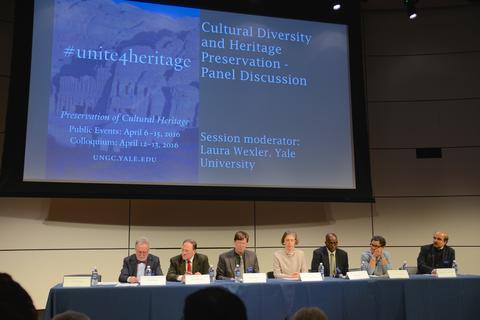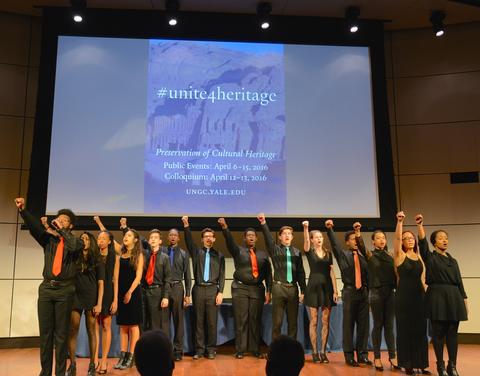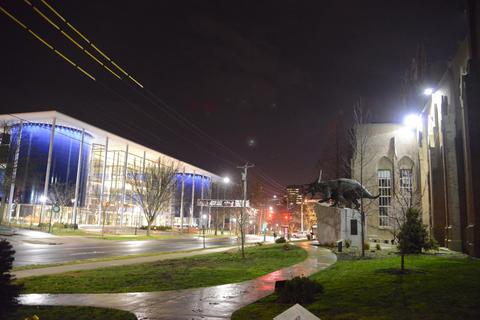In pictures: the international heritage community gathered at West Campus to discuss a response to Culture in Crisis. Irina Bokova, Director General of UNESCO, joined Stefan Simon and colleagues in a tour of the Institute for the Preservation of Cultural Heritage. An evening workshop on cultural diversity concluded the first day of the Global Colloquium of University Presidents, capped by an uplifting performance by Shades, a unique co-educational a cappella group at Yale
Culture in Crisis Workshop
Stakeholders and decision makers from across the globe assembled Monday, April 11th for “Culture in Crisis”, a workshop hosted by Yale’s Institute for the Preservation of Cultural Heritage and the Victoria & Albert Museum as part of the eighth Global Colloquium of University Presidents. The workshop was the second in a series on this subject under the patronage of UNESCO – the United Nations Educational, Scientific and Cultural Organization.
Focusing on the ongoing destruction and loss of cultural heritage in North Africa, the Middle East, and throughout the world, panelists presented ways to help inform the current situation, especially on such topics as looting, illicit trade, the destruction of sites and urban fabric, the humanitarian impact, and loss of local skills, crafts and indigenous knowledge.
Welcoming guests from China, India, France, Mali, UK, Italy, Syria, Nigeria, Jordan, and the US, Stefan Simon, Director of the IPCH, reflected on those delegates who had been unable to attend the Colloquium events because of the different conditions in their daily lives in the Middle East and Africa. Since 2004, insurgents have controlled over 4000 archaeological sites in Iraq, and the ancient city of Palmyra in Syria was recently retaken from Islamic State militants, who had occupied the UNESCO World Heritage Site since May. “We must remember who cannot be here. With our shared heritage comes a shared responsibility, and we will hear their voices in today’s forum” he said.
The Culture in Crisis forum heard that universities, through rich interdisciplinary expertise, are vital to the effort to affect a new, relevant language that sets heritage preservation in the contexts of economics, social cohesion and governance. In addition to post-conflict destruction, illicit trade and looting, delegates learned that some of the greatest threats to cultural heritage come from agriculture, urban development and climate change, requiring a broad approach to training the next generation of on-the-ground preservation experts. With a focus on countries rather than objects, delegates also stressed a widespread need for the integration and active engage of local communities.
“We need to have an interpretation of our culture that touches the heart, and for that we need people. Communities provide the setting for the rituals of our lives. People love their heritage because it is theirs”, said Gustavo Araoz, President of the International Council on Monuments and Sites (ICOMOS). Bringing together the languages of cultural symbolism, belief, and science would make the cultural sector more proactive and more impactful, for example in tackling illicit trafficking, with local communities the first line of defense in their “peaceful refusal” to cede to terrorism and other threats to cultural heritage.
One of five workshops that will report to the full meeting of 60 university presidents and faculty at Yale’s West Campus on Wednesday, April 13, the Culture in Crisis forum will make recommendations on the gaps, opportunities and priorities for universities and their partners to work together for the future of cultural heritage.
Information about the colloquium and public events can be found online here: http://ungc.yale.edu/. Readers are invited to explore the full calendar of events posted on the UNGC website. Follow the conversation about the preservation of cultural heritage by using the hashtag #unite4heritage.
